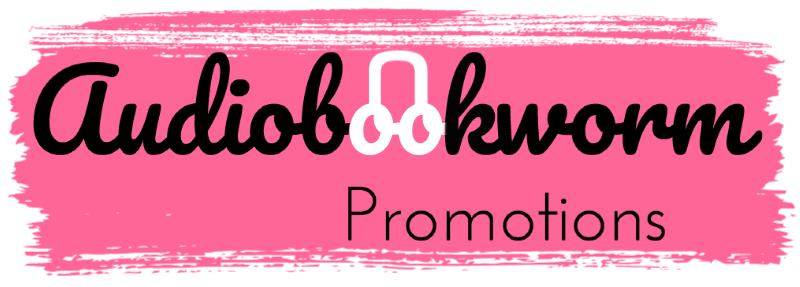
Author: Fernando Torres
Narrator: Amelie Edwards
Length: 7 hours 13 minutes
Publisher: Fernando Torres
Released: Jan. 9, 2021
Genre: Historical Fiction

A Habit of Resistance is the humorous story of a group of nuns who progress from having a small gun club to joining the French Resistance during WWII. Renee is from a small town, in provincial France, who flees to Paris, only to find that it has been overrun by Nazis. He returns to his hometown of Brassac to discover that the fiancé he abandoned on the night of their wedding has joined the local convent. He finds himself mayor of the town he abandoned when the former officeholder flees to avoid working with the Vichy government. His return causes his fiancé, Noele, to re-examine her decision to become a nun while he must decide with whom he will collaborate. The offbeat nuns must wrestle with how far to expand the margins of their vows, in hopes of saving their town and themselves. A Habit of Resistance is a work of personal denial and redemption.
 "Even profound ideas benefit from a little bit of humor." - Fernando Torres
Fast-paced, whimsical stories that explore complex moral dilemmas are what define this author's mission. During over a decade in network television at ABC/Disney, Inc., Fernando was fortunate to have worked closely with many of his generation's most talented writers and producers. Time spent on the sets of numerous iconic sitcoms led to a light, humorous writing style unique in modern literature. At ABC/Disney, Inc., Fernando also participated as a judge and mentor in the writing development program, which inspired additional contributions in education. Many of his stories are inspired by his travels, though he has more permanent roots in the United States and Japan. An instrument-rated pilot, he also enjoys writing music and photography.
"Even profound ideas benefit from a little bit of humor." - Fernando Torres
Fast-paced, whimsical stories that explore complex moral dilemmas are what define this author's mission. During over a decade in network television at ABC/Disney, Inc., Fernando was fortunate to have worked closely with many of his generation's most talented writers and producers. Time spent on the sets of numerous iconic sitcoms led to a light, humorous writing style unique in modern literature. At ABC/Disney, Inc., Fernando also participated as a judge and mentor in the writing development program, which inspired additional contributions in education. Many of his stories are inspired by his travels, though he has more permanent roots in the United States and Japan. An instrument-rated pilot, he also enjoys writing music and photography.Website⎮Instagram

 Amelie grew up in the English countryside in Shropshire where she developed a love for stories and folklore. Amelie started out as a Medieval History graduate before going on to gain a Masters in acting from East 15 acting school (UK) in 2012. Since then she has gone on to work in film, theatre and audio. In 2019 she began to work with the BBC producing, writing and performing her own show for Radio 4 and BBC Sounds.
Amelie grew up in the English countryside in Shropshire where she developed a love for stories and folklore. Amelie started out as a Medieval History graduate before going on to gain a Masters in acting from East 15 acting school (UK) in 2012. Since then she has gone on to work in film, theatre and audio. In 2019 she began to work with the BBC producing, writing and performing her own show for Radio 4 and BBC Sounds.Website

Where the idea came from- Stacy Eaton
- Tell us about the process of turning your book into an audiobook.
- Because of its continuing popularity, A Habit of Resistance was the natural choice to become my first audiobook. I grew up with love for movies like "Casablanca" and "Citizen Kane," so those were my influences in its production. I also have a graduate degree in film studies, and even though literature is a different medium, that influence is always there. An audiobook allows me to be more specific with the emotional intent, especially with the aid of original music.
- Do you believe certain types of writing translate better into audiobook format?
- Most certainly. Because of my television background, my books all tend to translate particularly well into the audiobook format. A Habit of Resistance has the feel of 1940's cinema, and that is by intent.
- Was a possible audiobook recording something you were conscious of while writing?
- I thought there might be a possibility that it would translate to film as I have relationships in that medium. I've always loved listening to audiobooks on road trips, so it's actually rather odd that it never occurred to me. Still, with the successful completion of A Habit of Resistance, I am now very aware of the possibilities. Only now have I become truly aware that the audiobook format allows me to get closer to the reader through the actor's performance and the opportunity for me to utilize my music and film background.
- How did you select your narrator?
- The challenge with A Habit of Resistance is that the reading had to be both humorous and poignant. To convey the comedy and drama in a way that is properly balanced was the primary challenge in writing the novel, and the narrator would have a similar hill to climb. While there were several excellent auditions, Amelie's background as a professional actress gave her an edge that was quite apparent in her reading.
- How closely did you work with your narrator before and during the recording process? Did you give them any pronunciation tips or special insight into the characters?
- Amelie and I worked closely together, and her reading is as close to my original intent as will ever be offered. In other words, even if A Habit of Resistance is eventually translated into film, it is doubtful that it will be as close to the original novel as there would be a greater diversity of creative voices involved. Occasionally, I would ask Amelie about her pronunciation of a word as she is British, but she required very little in terms of creative direction. We discussed the characters at length, and one of my concerns was the portrayal of negative characters who have to be multi-dimensional despite our correct inclination to hold their behavior against them. Also, a challenge is a character who starts rather negative, but because of their character arc is ultimately redeemed.
- Were there any real life inspirations behind your writing?
- The characters and situations are fictitious but based on actual history. It has been largely forgotten that the clergy were, in fact, a critical part of the resistance movement in Europe. It is a travesty that people like Father Marie Benoit, Irena Sendler, and Father Alexander Glasberg, are now largely forgotten. I felt that if I made the story as interesting and entertaining as possible, perhaps I could remind people of some of the things that they had fought for.
- How do you manage to avoid burn-out? What do you do to maintain your enthusiasm for writing?
- First of all, you should never write a story unless you feel so passionate about it that it can't be helped. For me, books are a multiple year endeavor, so I wouldn't dream of starting one if I didn't want to write the story so bad that there was an option of getting out of the task. The story has to have an inescapable desire to be born. It is almost a living, breathing thing that has a will of its own. If a story is strong enough to wrestle its way to completion, then who am I to stop it?
- Are you an audiobook listener? What about the audiobook format appeals to you?
- I love road trips. I'm especially partial to small, powerful roadsters, and there is something magical about driving across the vast American landscape will having a narrator bring a story to life. Your environment and the reading of the book can come into harmony in a way that is magical.
- Is there a particular part of this story that you feel is more resonating in the audiobook performance than in the book format?
- There is a death scene of one of the characters...I cried. I never felt quite as strongly about it before, but something about hearing it and having a bit of distance was very compelling. I had written some original music to go under the scene, and the combination of that with Amelie's reading really got to me.
- If you had the power to time travel, would you use it? If yes, when and where would you go?
- There is a bit of time travel in two of my other books (More Than Alive and The Shadow That Endures), so...most earnestly. However, a time machine would be wasted on me as I would sit beside it, destroyed that I didn't have time to visit everywhere I desired to go. I'd really like to visit the Middle Ages, especially as I almost think I could get away with it. Also high on the list would be Edo-era Japan, but my Japanese is modern, and I'd have to pass for a Jesuit priest.

Click here to view the full tour schedule!
Plugging you into the audio community since 2016.









Comments
Post a Comment